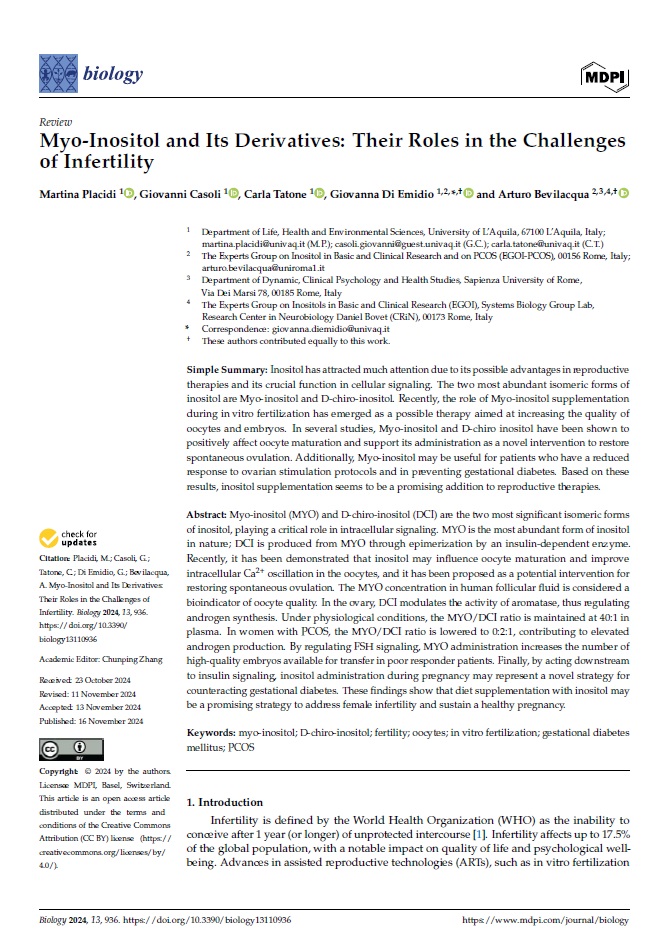Authors:
Martina Placidi, Giovanni Casoli, Carla Tatone, Giovanna Di Emidio and Arturo Bevilacqua
Simple Summary
Inositol has attracted much attention due to its possible advantages in reproductive therapies and its crucial function in cellular signaling. The two most abundant isomeric forms of inositol are Myo-inositol and D-chiro-inositol. Recently, the role of Myo-inositol supplementation during in vitro fertilization has emerged as a possible therapy aimed at increasing the quality of oocytes and embryos. In several studies, Myo-inositol and D-chiro inositol have been shown to positively affect oocyte maturation and support its administration as a novel intervention to restore spontaneous ovulation. Additionally, Myo-inositol may be useful for patients who have a reduced response to ovarian stimulation protocols and in preventing gestational diabetes. Based on these results, inositol supplementation seems to be a promising addition to reproductive therapies.
Abstract
Myo-inositol (MYO) and D-chiro-inositol (DCI) are the two most significant isomeric forms of inositol, playing a critical role in intracellular signaling. MYO is the most abundant form of inositol in nature; DCI is produced from MYO through epimerization by an insulin-dependent enzyme. Recently, it has been demonstrated that inositol may influence oocyte maturation and improve intracellular Ca2+ oscillation in the oocytes, and it has been proposed as a potential intervention for restoring spontaneous ovulation. The MYO concentration in human follicular fluid is considered a bioindicator of oocyte quality. In the ovary, DCI modulates the activity of aromatase, thus regulating androgen synthesis. Under physiological conditions, the MYO/DCI ratio is maintained at 40:1 in plasma. In women with PCOS, the MYO/DCI ratio is lowered to 0:2:1, contributing to elevated androgen production. By regulating FSH signaling, MYO administration increases the number of high-quality embryos available for transfer in poor responder patients. Finally, by acting downstream to insulin signaling, inositol administration during pregnancy may represent a novel strategy for counteracting gestational diabetes. These findings show that diet supplementation with inositol may be a promising strategy to address female infertility and sustain a healthy pregnancy.

